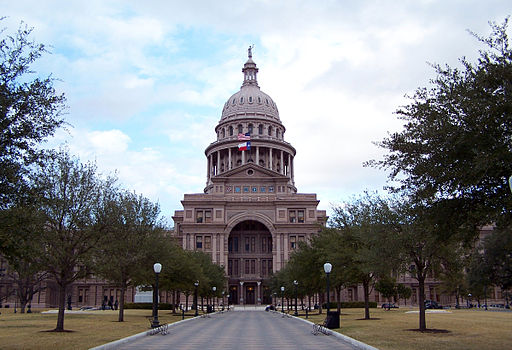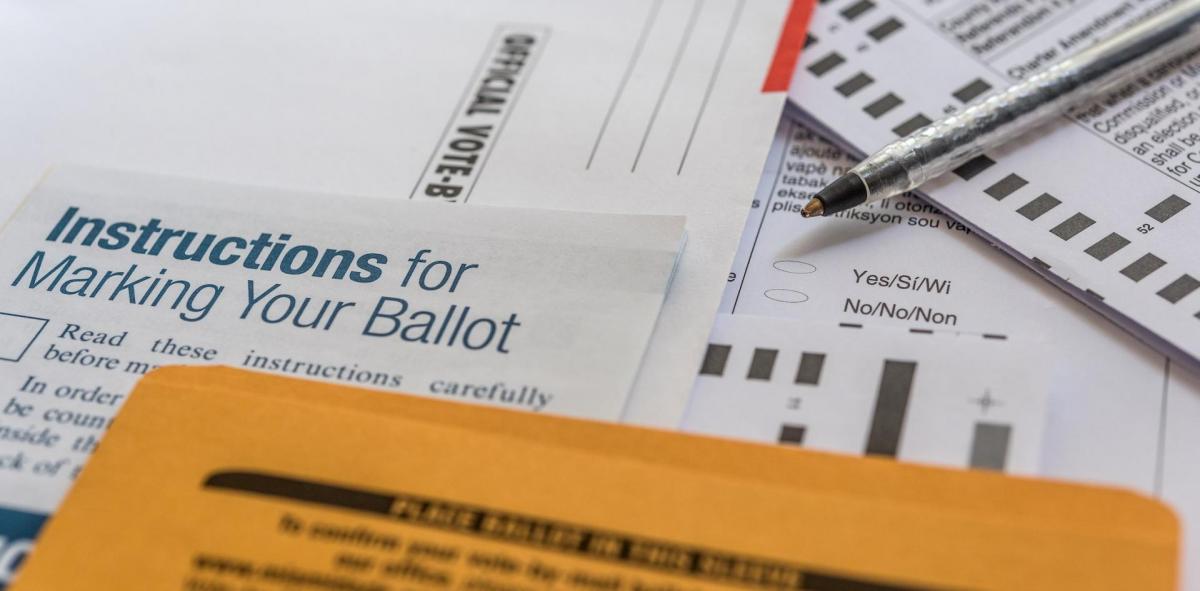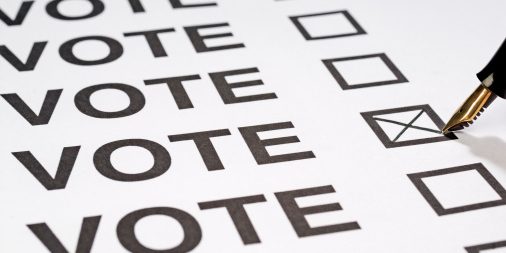Tag: texas
-
Texas voters will decide on eighth amendment related to the State Commission on Judicial Conduct since its founding in 1965 in November

Texas will head to the polls in November to decide on 17 ballot measures, including Proposition 12, which will be the eighth amendment related to the State Commission on Judicial Conduct (SCJC), which was established in the constitution in 1965. Proposition 12 would amend the Texas Constitution to change the composition of the SCJC by…
-
Texas Gov. Abbott signs bill restricting the use of extreme risk protection orders

On June 22, Gov. Greg Abbott (R) signed SB 1326 into law, banning the enactment or enforcement of extreme risk protection orders (ERPOs) — also known as red flag laws — in the state. The bill explicitly applies to any state agency or authority, university systems, municipalities, counties, special districts and authorities, and district attorneys…
-
Texas governor considers bill requiring proxy advisor disclosures

The Texas legislature passed a bill on June 2 requiring proxy advisory firms to disclose when their shareholder vote recommendations at Texas-based companies incorporate ESG or other non-financial considerations. If Gov. Greg Abbott (R) signs the bill, it would become the first law of its kind and give Texas companies new legal recourse when proxy…
-
Texas comptroller removes BlackRock from boycott list

What’s the story? Texas Comptroller Glenn Hegar announced last week that his office removed BlackRock from the state’s list of firms barred from managing public investment funds over their treatment of fossil fuel companies. Hegar said BlackRock’s recent shift away from public ESG support made the firm eligible to do business with the state again.…
-
Ballot measure update: Texas, New York add new measures for 2025; Louisiana, Nebraska for 2026

The number of certified statewide ballot measures for both 2025 and 2026 is trending above average compared to previous election cycles as of June 10. 2025 ballot measures For 2025, 27 statewide ballot measures have been certified in seven states—Colorado, Louisiana, New York, Ohio, Texas, Washington, and Wisconsin. This is seven more than the average…
-
Ortiz Jones defeats Pablos in San Antonio mayoral runoff election

Gina Ortiz Jones defeated Rolando Pablos 54.3% to 45.7% in the June 7, runoff election for mayor of San Antonio, Texas. Ortiz Jones and Pablos advanced to the runoff from the nonpartisan general election on May 3. Ortiz Jones received 27.2% of the vote and Pablos received 16.6%. The two advanced to a runoff because…
-
Texas Legislature refers 17 constitutional amendments for Nov. 2025 ballot—the highest number for a single election date since 2003

The 89th Regular Session of the Texas State Legislature adjourned on June 2. During the 140-day session, legislators referred 17 constitutional amendments to the Nov. 4, 2025, ballot—the highest number for a single election date in more than two decades. As Republicans hold majorities in both chambers but lack the two-thirds required to refer constitutional…
-
Texas Legislature referred seven constitutional amendments to November 2025 ballot last week, including bail measure

The Texas State Legislature voted to send seven constitutional amendments to the Nov. 4 ballot last week (May 25 – May 31). One amendment would let judges deny bail for individuals accused of certain crimes, one would make changes to the state judiciary oversight commission and process, two would adjust the allocation of tax revenue,…
-
Ballot measure update: Texas adds 7 more for 2025; Alaska campaign finance and Missouri abortion measures certified for 2026

The number of certified statewide ballot measures for both 2025 and 2026 is trending above average compared to previous election cycles as of May 27. 2025 ballot measures For 2025, 22 statewide ballot measures have been certified in six states—Colorado, Louisiana, Ohio, Texas, Washington, and Wisconsin. This is nine more than the average of 13…
-
Anti-ESG bill dies in Texas House

A Texas bill that sought to shift the legal burden in shareholder lawsuits involving ESG policies failed in committee last week. The House Judiciary and Civil Jurisprudence Committee voted it down 9–1. If enacted, the bill would have been the first to make it easier for shareholders to challenge ESG-related decisions by requiring companies to…

